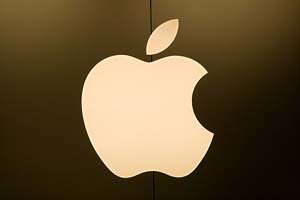
The cellular sector has been looking for an answer to Apple’s iPhone, however it continues to suck all the air out of the room. Apple earns the largest portion of cellular market profits by a huge margin, even though it has got the smallest market share. The iPhone’s popularity makes it impervious to bad press. The recent “Antennagate” wireless reception crisis didn’t dent sales within the least. Even with Android on the rise, mobile industry analysts say Apple’s iPhone is so lucrative it is unlikely the business feels threatened. Source of article – Apple dominates mobile industry with a fraction of market share by Newystype.com.
Apple brains defeat rivals brawn
Apple’s domination of the mobile industry was reported on September 21 by Fortune on CNN.com. Giving its stock a “buy” rating, the fund market analyst Canaccord Genuity projected out Apple stock as high as $ 356 per share. As part of its recommendation of Apple stock, Canaccord Genuity offered evidence of how the business capitalizes on its inventions. Apple sent 17 million iPhones out the door in the first half of 2010—3 percent of mobile sector sales. Samsung, Nokia and LG–the world’s three largest handset makers–sold 400 million units combined. Apple collected 39 percent of the mobile industry’s profits during that time. Apple left its heavyweight rivals competing among themselves for 32 percent. The significance of Apple’s performance was put in context by Canaccord Genuity. As a rule, cell phone manufacturers are lucky to make 10 percent operating margins, or any profit at all. On the other hand, Apple is thought to m! ake a gross margin of 50 percent on the iPhone, with an operating margin of 30 percent.
What is powering Apple’s business design?
Producing 3 percent of an industry’s products to make almost 40 percent of the industry’s profit was unheard of until Apple came along with the iPhone. Apple has far outgained its rivals with more than slick marketing campaigns, according to Jason Mick at Daily Tech. A large factor is the carrier iPhone owners love to hate. Apple has wrought an exceedingly rich contract from AT and T, who’s using the iPhone to gain customers. Apple also uses cheaper hardware than top-of-the-line Android competitors. Plus, Apple is very aggressive in negotiating with manufacturers for higher volume and lower prices. Apple’s battle plan has resulted in piles of money to spend on invention within the iPhone/Android war. However, that could be a moot point. Mick figures that Steve Jobs is not all that concerned with Android. Catering to a loyal core of iPhone enthusiasts has gotten Apple this far.
Even Consumer Reports can’t derail the iPhone
Apple haters hoped Antennagate would be Apple’s comeuppance. However the media maelstrom amounted to nothing. When the iPhone 4G was unveiled, a concerted media effort to inflate a reception issue with the new model didn’t make it much further than the blogosphere. Antennagate reached its peak in July. After Consumer Reports said it would not recommend the iPhone, analysts predicted a disaster that never came. Recently, the magazine reiterated its position on the product. Apple could care less as the iPhone, as reported by Computerworld, finished first in J.D. Power and Associates’ smartphone customer satisfaction survey for the fourth year in a row.
Additional reading
CNN
CNN.com
Daily Tech
dailytech.com
Computerworld
computerworld.com
No comments:
Post a Comment